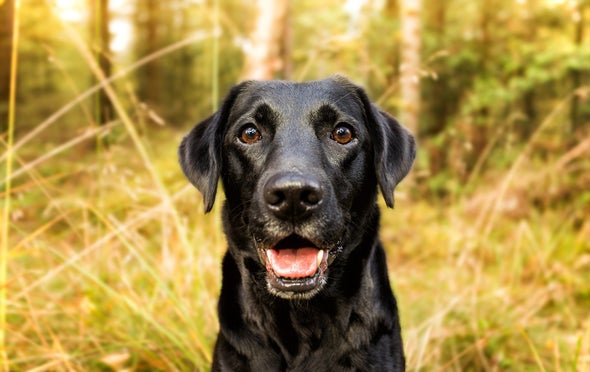This is Scientific American's 60-second Science, I'm Lucy Huang.
If you have a dog, you've probably tried to train it. The basics, like sit and stay. Plus, of course, not to go to the bathroom on your rugs. And if your dog learns things quickly, you might start to think it's really smart. But:
"If you really want to know about dog intelligence, you have to look at non-dogs as well to understand what's special to dogs and what is just typical of groups they belong to."
Stephen Lea, a retired professor of psychology from the University of Exeter in the U.K. He and colleagues looked at dog intelligence in an animal intelligence context for a report in the journal Learning & Behavior.
Lea and his team looked at hundreds of published studies to compare dog cognition with that of other animals. They found that dogs are adept at picking up on social cues.
"They're good, for example, at using human pointing or following human gaze, looking at what you're looking at. We're not saying dogs aren't good at those tasks, they are. What we were saying is that there are some other animals that are just as good at them."
Like bottlenose dolphins and gray seals.

"It's not something that's unique to dogs or indeed that unexpected in dogs, given the sorts of animals dogs are. Namely, they're domesticated. They're derived from social hunters. And important, they're carnivores. They belong to a big group of mammals that also includes cats, hyenas, otters, bears, and also the seals and sea lions, which we sometimes forget about. But which, of course, are also very easy to train despite not being domestic."
And while dog cognition may not actually be exceptional, their noses definitely are:
"Their sense of smell...the extraordinary things that they can discriminate, like which of two identical twins they're looking at or sniffing at."
Lea also points out there are some tasks that dogs apparently cannot do, such as use tools or exhibit self-awareness. But:
"There's always the possibility that someone, somewhere is at this moment demonstrating that a dog can do something that we said it couldn't. And, because you can't prove a negative, so we could be wrong...in some sense, one reason why we wrote the paper was to challenge our colleagues to, okay, show us the evidence. Find a dog that will do these things and we'll happily change our minds. We're not, oh, I can feel the word coming: we're not dogmatic."
Thanks for listening for Scientific American — 60-Second Science. I'm Lucy Huang.











